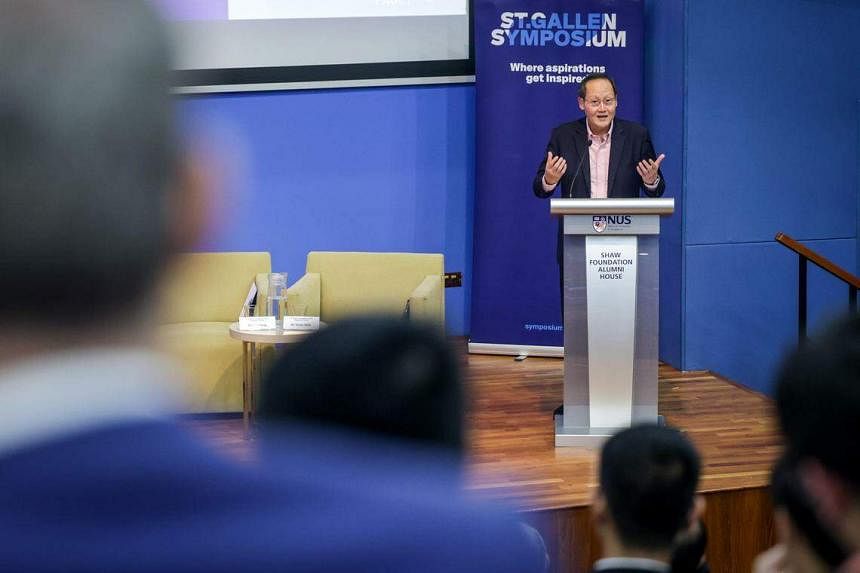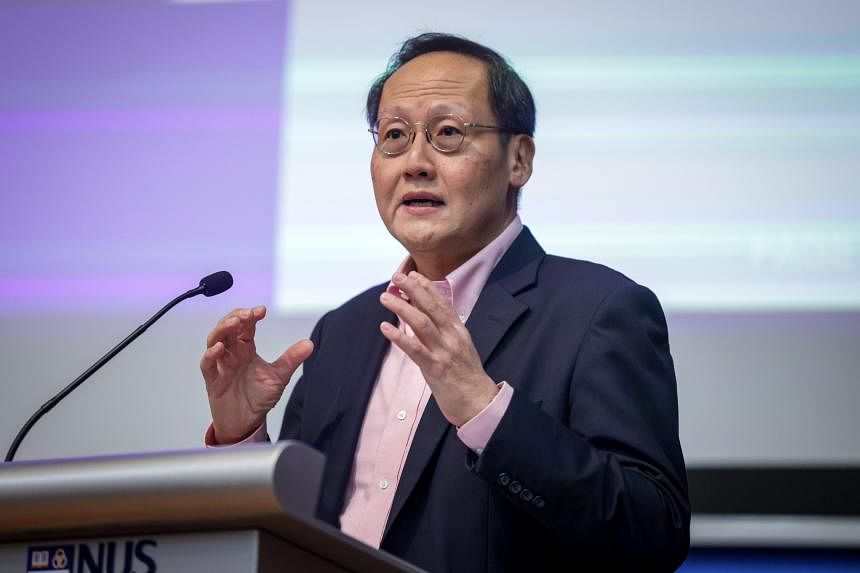SINGAPORE – Innovation, increased productivity and enhanced connection to the global economy can help Singapore offset the ever-growing challenges posed by scarcities in areas like capital, talent and infrastructure, noted Manpower Minister Tan See Leng.
He also said on Jan 25 that Singapore’s resource constraints are being heightened by geopolitical tensions, which have permeated not just politics, but also trade, technology and security.
“Global supply chains are increasingly being put under pressure of disruptions, limiting many countries’ ability not just to meet, but to access and address the demand for resources,” said Dr Tan, who is also Second Minister for Trade and Industry.
“These pressures are felt even more keenly in smaller countries and economies like Singapore, that rely on trade to fulfil our resource needs.”
Dr Tan told the St Gallen Symposium Singapore Forum, which brings together young people, policymakers, business leaders and academia, that Singapore needs to build more self-sufficiency by diversifying supply chains and promoting high-end advanced manufacturing and local production.
The scarcity of talent is another challenge, but the minister noted that there will be limits as to how many foreigners the country can take in before Singaporeans feel less at home, and it will become even harder in the next decade for the country to sustain economic expansion based on workforce growth alone. That means Singapore must optimise its manpower resources to support high-value, technology-driven and productivity-led growth.
“We must focus on raising the quality of our workers and improving their allocation, the distribution to more productive areas of the economy. We do this through both our local and foreign workforce strategies,” said Dr Tan. “Our focus for the next bound will be helping our locals move into the more productive growth areas of the economy, for instance, sustainability and digitalisation, which also tend to have better-paying jobs.”
Energy scarcity is another key challenge for Singapore, which relies on imported natural gas to produce 95 per cent of its electricity needs, noted Dr Tan, adding that the global energy crisis has shown that even strong supply networks can be disrupted.
Singapore has also committed to achieving net-zero emissions by 2050, but it is significantly disadvantaged in alternative, renewable and clean energy.
“Our strategy must be to expand possibilities through innovation, diversification and cooperation,” he said, adding that one solution is to diversify energy sources by exploring emerging low-carbon energy alternatives.
Dr Tan cited efforts to build domestic capabilities, starting with smaller-scale pathfinder projects such as testing and deploying the direct use of ammonia as a low-carbon fuel for energy generation.
The Lao PDR-Thailand-Malaysia-Singapore Power Integration Project, which started in June 2022, has also allowed Singapore to draw renewable energy generated from solar and hydroelectric power.

“Engaging in cross-border electricity trade is just one example of how Singapore seeks regional and global integration to overcome our resource constraints,” Dr Tan said.
“As a small country, we must remain connected to the world. Singapore is a firm supporter of a rules-based multilateral trading system.”
There are also other forms of scarcity globally that Singapore needs to grapple with, said speakers on a panel at the symposium.
The symposium, which focused on the theme of confronting scarcity, also heard from other speakers, including SPH Media chief executive Teo Lay Lim, who noted that a lack of risk appetite might hinder society from confronting these challenges.
“When we’re dealing with scarcity, it involves innovation, it involves change, it affects everyone. If we were to be a bit short on the appetite for risk to make some big bets, that might be why we miss the boat on certain opportunities,” she said.
Singapore Management University president Lily Kong pointed to ethical challenges, ranging from deepfake content to overconsumption. “Rather than pushing more and more domain knowledge, which doesn’t make sense because the shelf life of knowledge is shortening, what we really need to spend more time on is values-based education,” she said.
HSBC Singapore chief executive Wong Kee Joo warned that there will be a huge scarcity of capital globally for transition projects amid geopolitical tensions and high interest rates.
But the climate problem is not just about capital, he said.
“There is a scarcity of knowledge in this field. A lot of new technologies are evolving.
“We talk about greenwashing, sometimes it is about ethics, but at the same time there’s also the challenge where baselines might not have been established because they’re so new.”
Singapore International Chamber of Commerce chief executive Victor Mills said society needs to take an “abundant attitude to scarcity”, or to have a growth mindset.
“It’s about using all available talent pools – for example, using mature workers in a much more intentional and smarter way than we sometimes do,” he said.
“Ditto on the power side, the power agenda is a transition, it’s going to take time and multiple sources of renewable energy to see us through.”
The symposium, which was held at the National University of Singapore’s Shaw Foundation Alumni House, attracted around 300 people.


